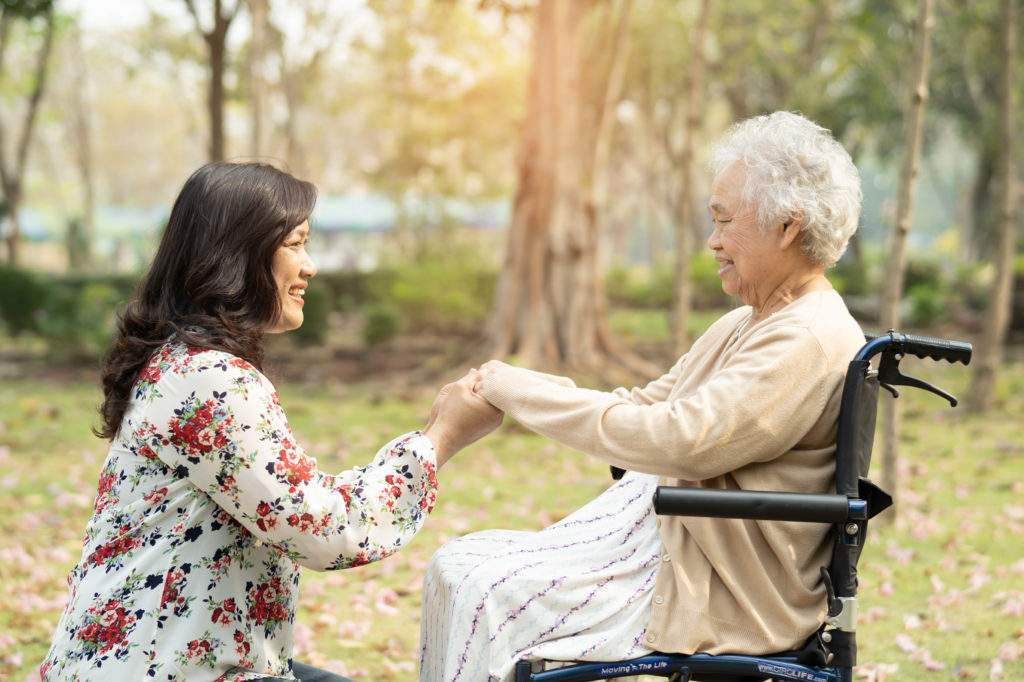
From Stressed to Blessed: Homeopathy for Caregivers
Last updated on February 17th, 2022 at 11:24 am

Caregiving can be one of the greatest gifts you can provide for a loved one, but it can also be overwhelming when you have other responsibilities to juggle. In this post, Heidi Weinhold, ND, talks about which homeopathic medicines caregivers can turn to for help navigating the stress and exhaustion of this demanding role. For more tips and information, visit DoctorHeidi.net.
Valiant heroes, taking on this tough duty
In your eyes, see real love and beauty
Quiet prayers at the end of the day,
Loneliness, exhaustion, anger, and sorrow
Care also for yourself and prepare for tomorrow.
This doctor knows firsthand the experience of being a caregiver. For seven years, my mother and I took care of my father while he lived with advanced Alzheimer’s disease. This large and once affable man was silenced by this horrific illness. While I was in the throes of caregiving, I vowed never to forget the toll on the individual giving care. Homeopathic medicines provided me with much-needed support during this difficult time.
Homeopathic Ignatia amara 30C is made from the St. Ignatius Bean and helps to relieve sadness from a heartache and to process grief. Some of the other indications for taking Ignatia include hypersensitivity, moodiness, and irritability that occur from the emotional stress of caring for a loved one. Consider taking this medicine after going through the emotional strain of losing a loved one, and it leaves you feeling overwhelmed.
The homeopathic medicine Staphysagria 30C is made from stavesacre, a Mediterranean shrub. Although commonly used for healing surgical wounds or bladder infections, it’s also a wonderful remedy for suppressed anger and guilt and for people who feel like they are constantly overextending themselves for others. Consider this medicine for when you have feelings of being not being enough or not doing enough. Staphysagria helps to “let go” of old hurts, insults, or humiliations. It’s useful for those who tend to internalize and have difficulty confronting other family members to participate in a loved one’s care.
When using Ignatia and Staphysagria for situational stress, take 5 pellets three times a day (morning, noon, and night). These should be taken only as needed and not every day. Stop taking once symptoms resolve, generally within one to two days. If symptoms persist, it may warrant seeking the advice of a homeopathic practitioner who can customize a prescription to the individual.
Feeling exhausted? Phosphoricum acidum 30C can help restore vitality by relieving physical and mental fatigue. For this particular homeopathic medicine, try taking 5 pellets once a day for 3 days, then continue taking 5 pellets once a week for a month until symptoms improve.

About. Dr. Weinhold: Heidi Weinhold, ND, is a naturopathic doctor specializing in homeopathy, nutritional supplements, and customized botanicals with a private practice in the suburbs of Pittsburgh, Pa. She holds a four-year degree from Southwest College of Naturopathic Medicine (SCNM) in Tempe, Ariz., where her studies included drug-herb interactions, homeopathic intakes, dialoguing with physicians, and incorporating natural modalities.
Disclaimer: The views and opinions expressed in this article are those of the author and do not necessarily reflect the position of Boiron.
Share article:
Related Articles:






4 thoughts on “From Stressed to Blessed: Homeopathy for Caregivers”
Spot on issues for care takers. Thank you.
I’m curious as to why you don’t recommend Cocculus?
I was looking for a remedy for caregiver burnout and most of the articles recommended Cocculus. I’d like your take on that if possible.
Hi Barbara, there are quite a few remedies that could benefits caregivers, and these are just a few recommendations. We invite you to reach out to Dr. Weinhold at https://www.doctorheidi.net/ or contact a homeopath in your area to learn about other options including Cocculus indicus.
Hello Barbara, and thank you for reminding me why I purchased three tubes of Cocculus (I need to keep better notes). I am going to give all three remedies a try depending on current symptoms, sleep quality, and levels of caregiving.